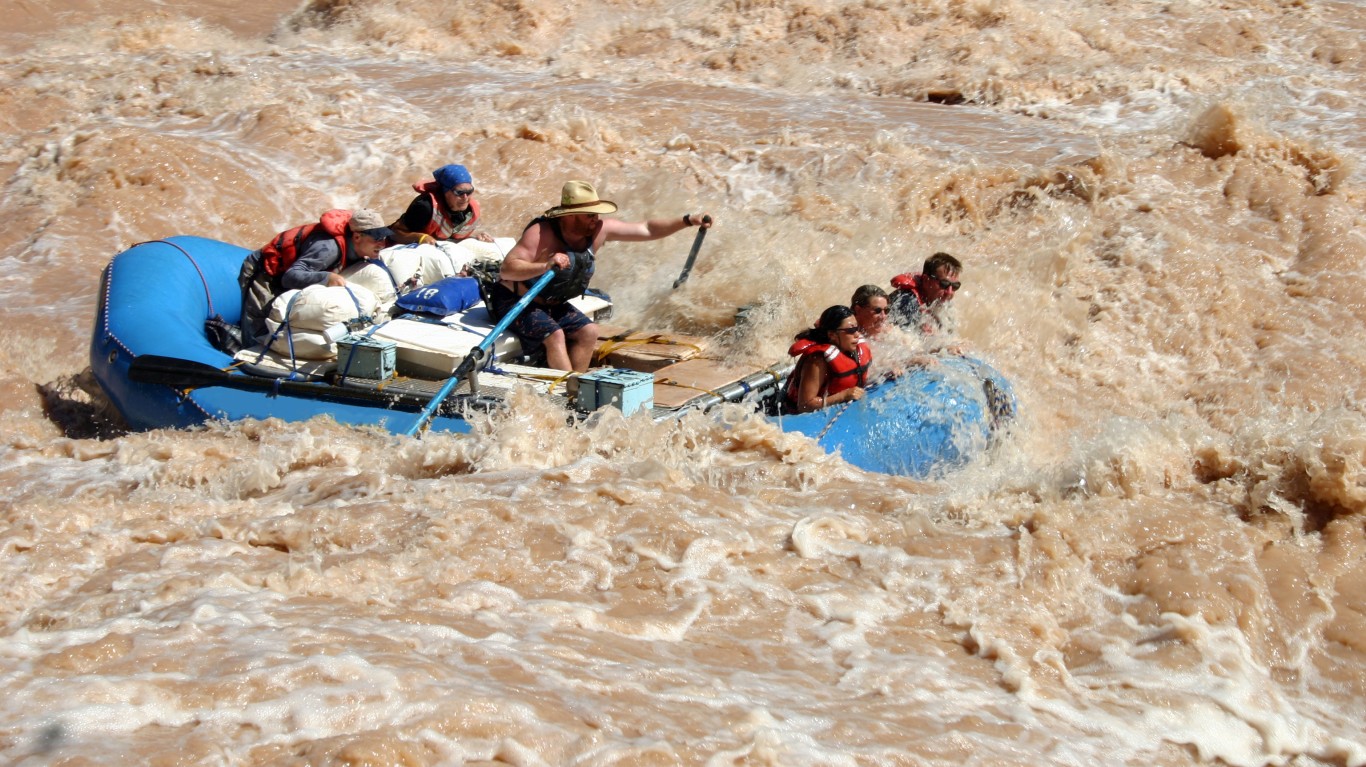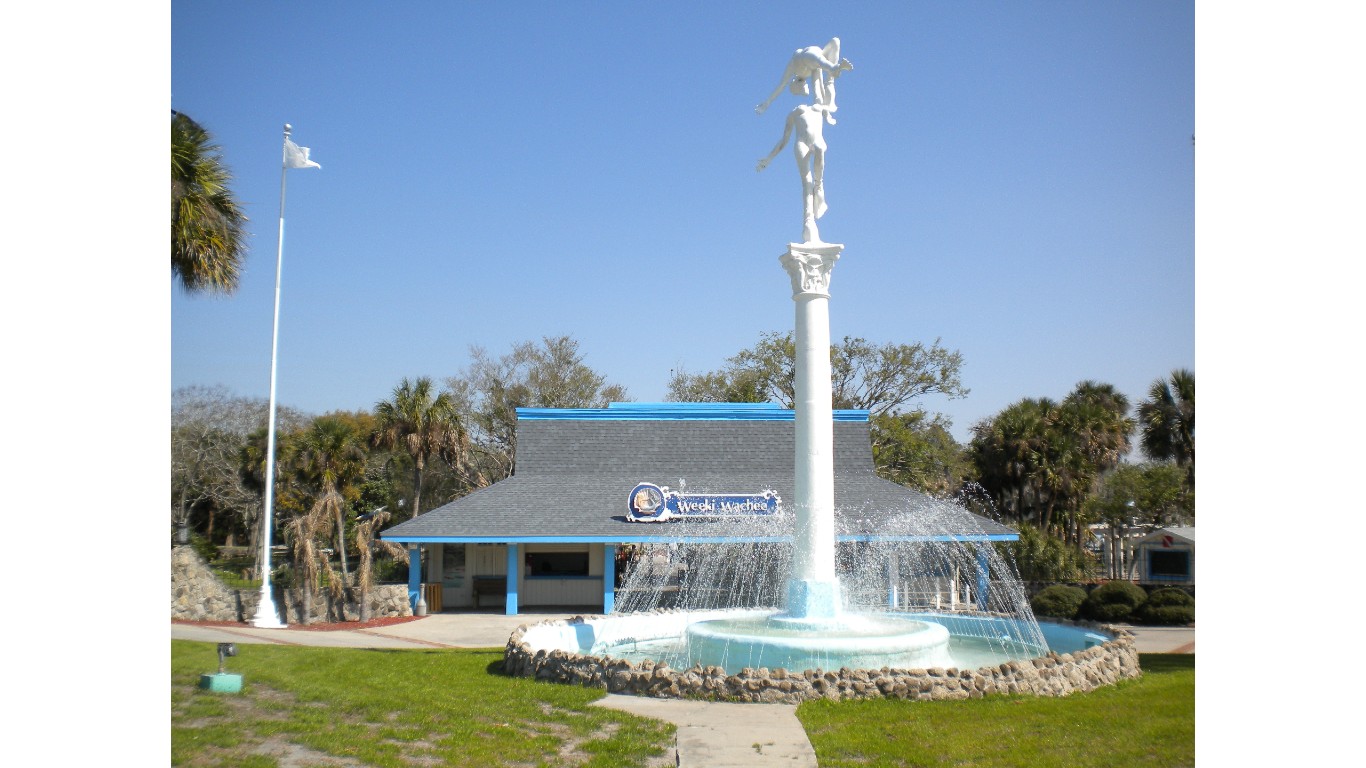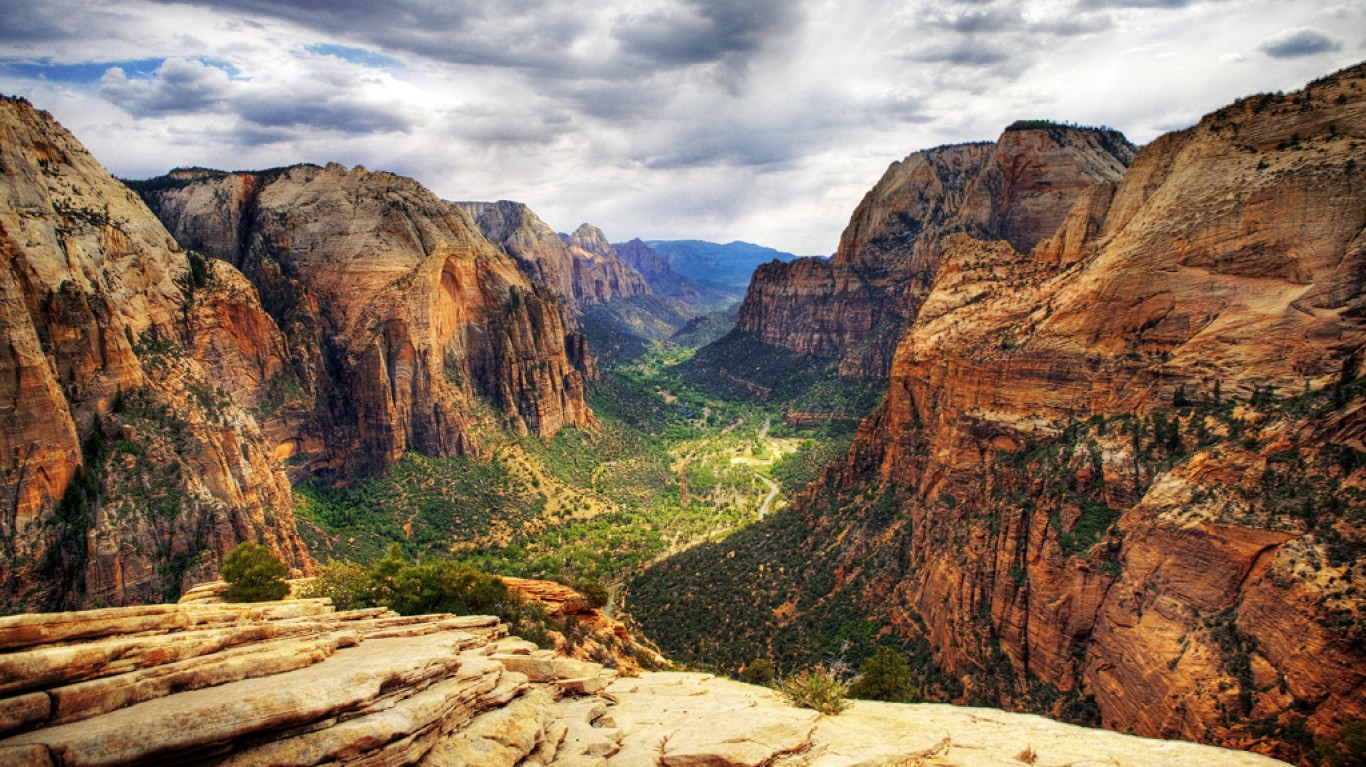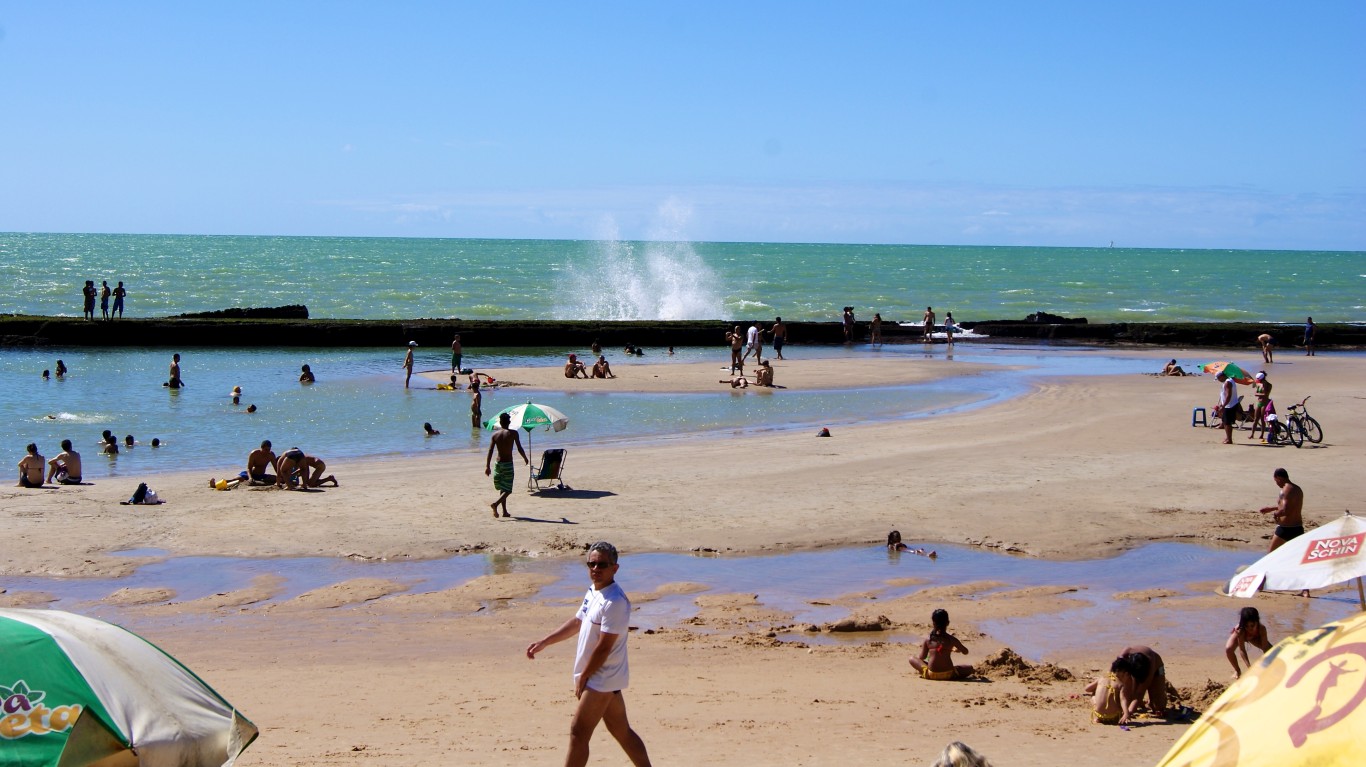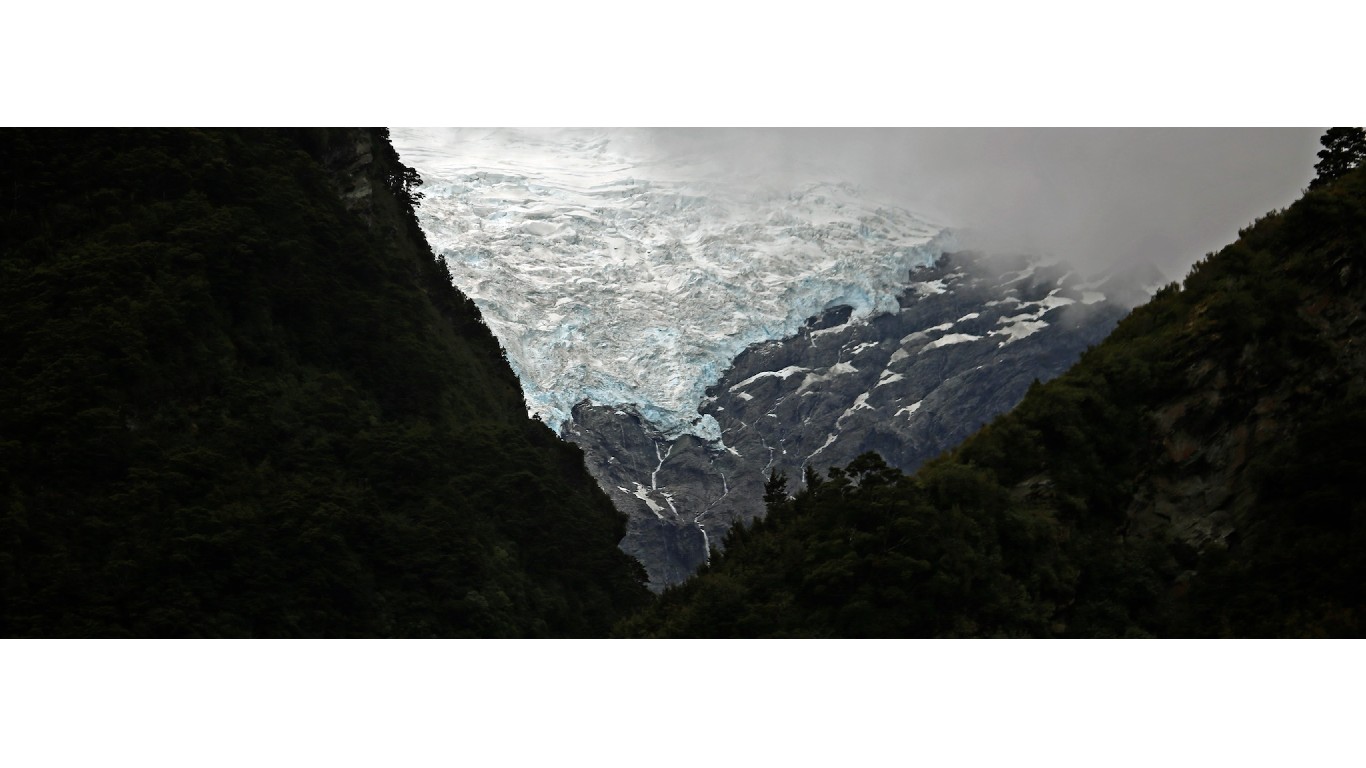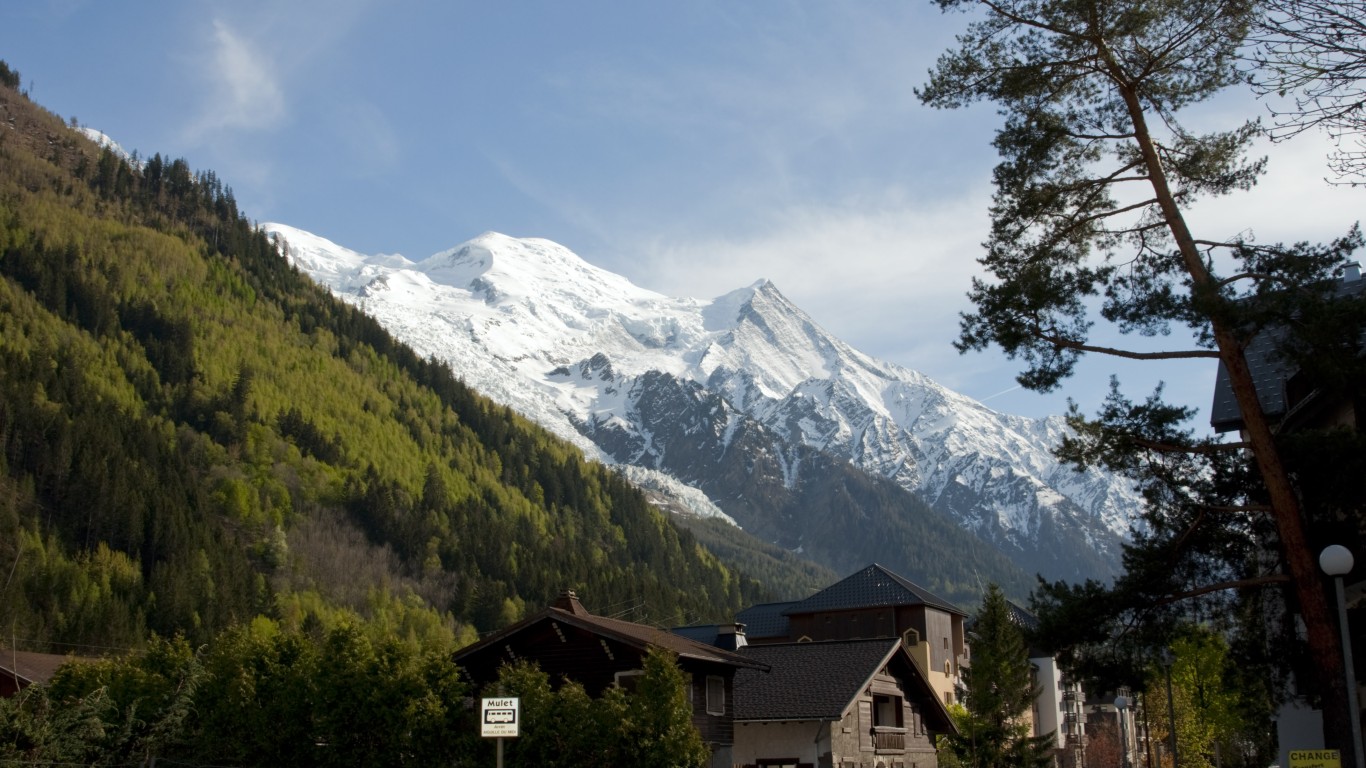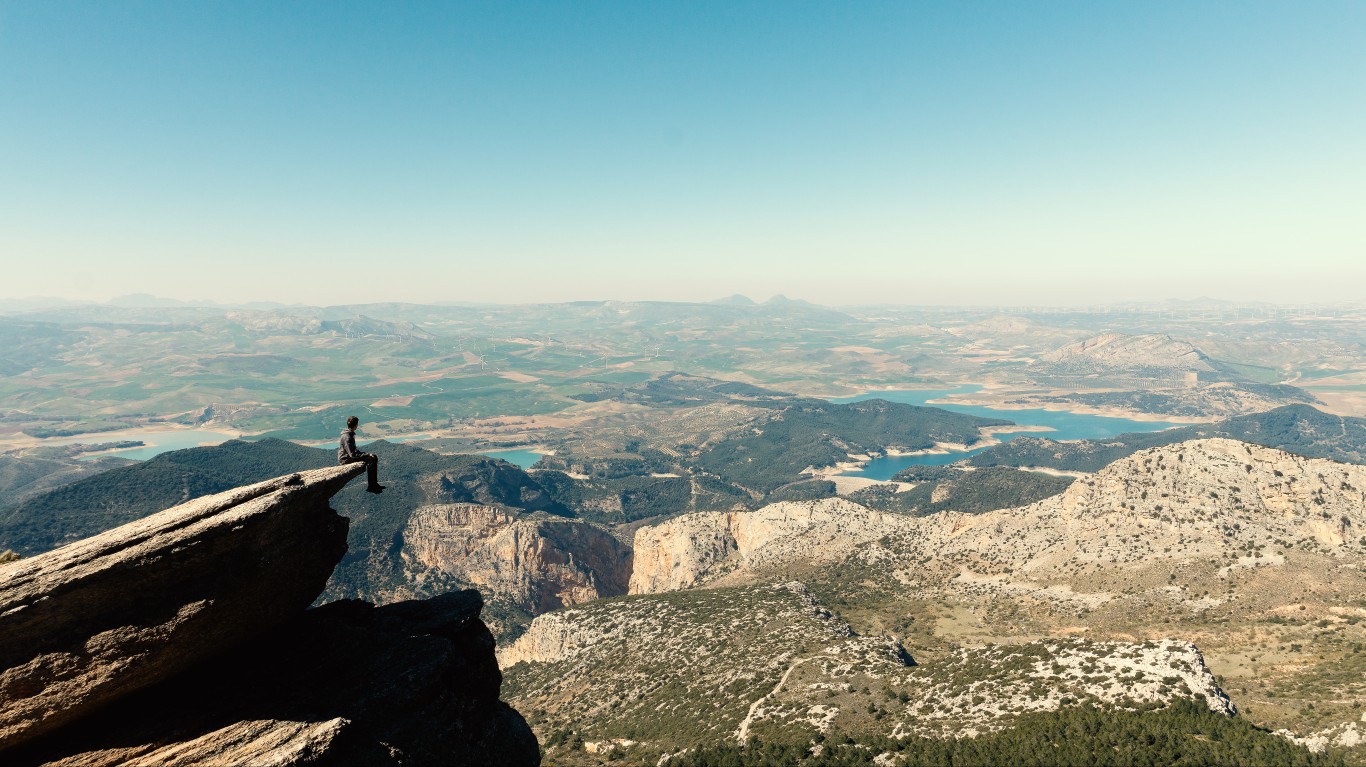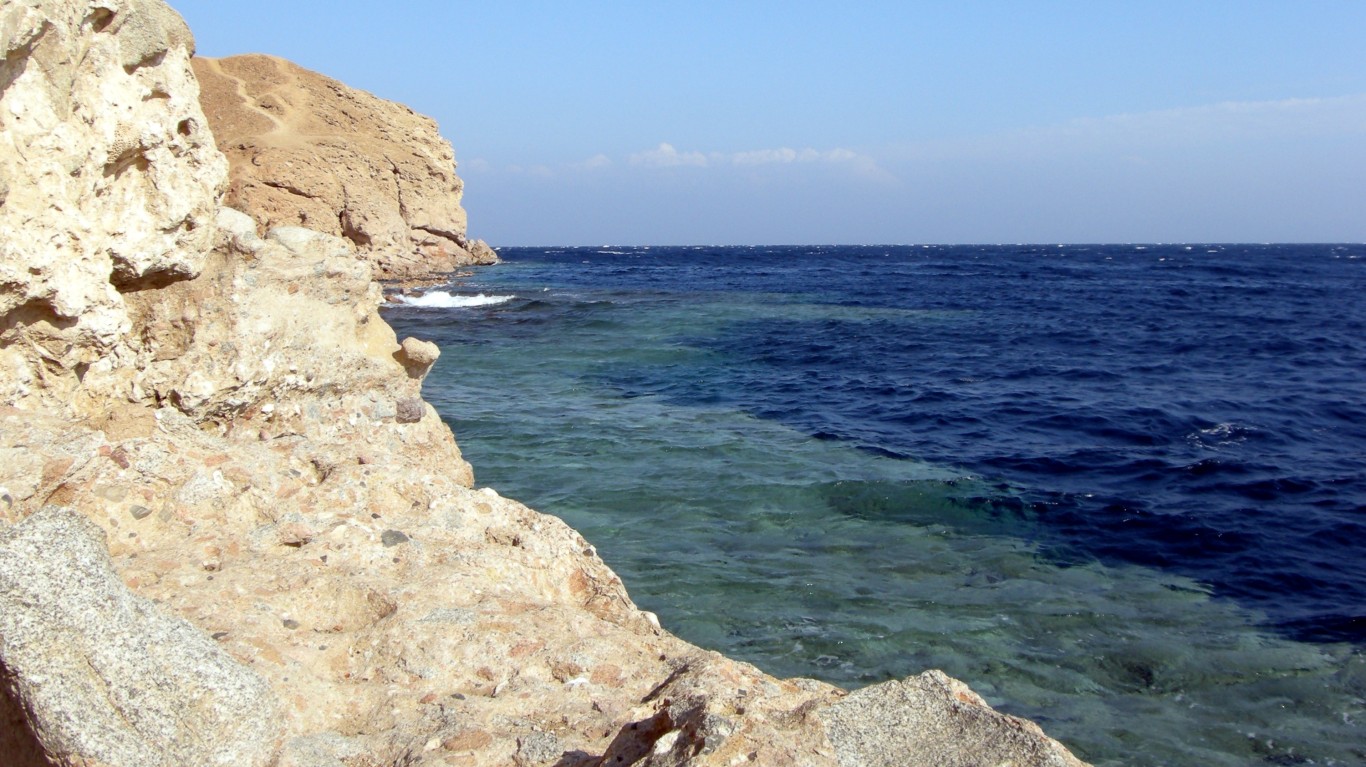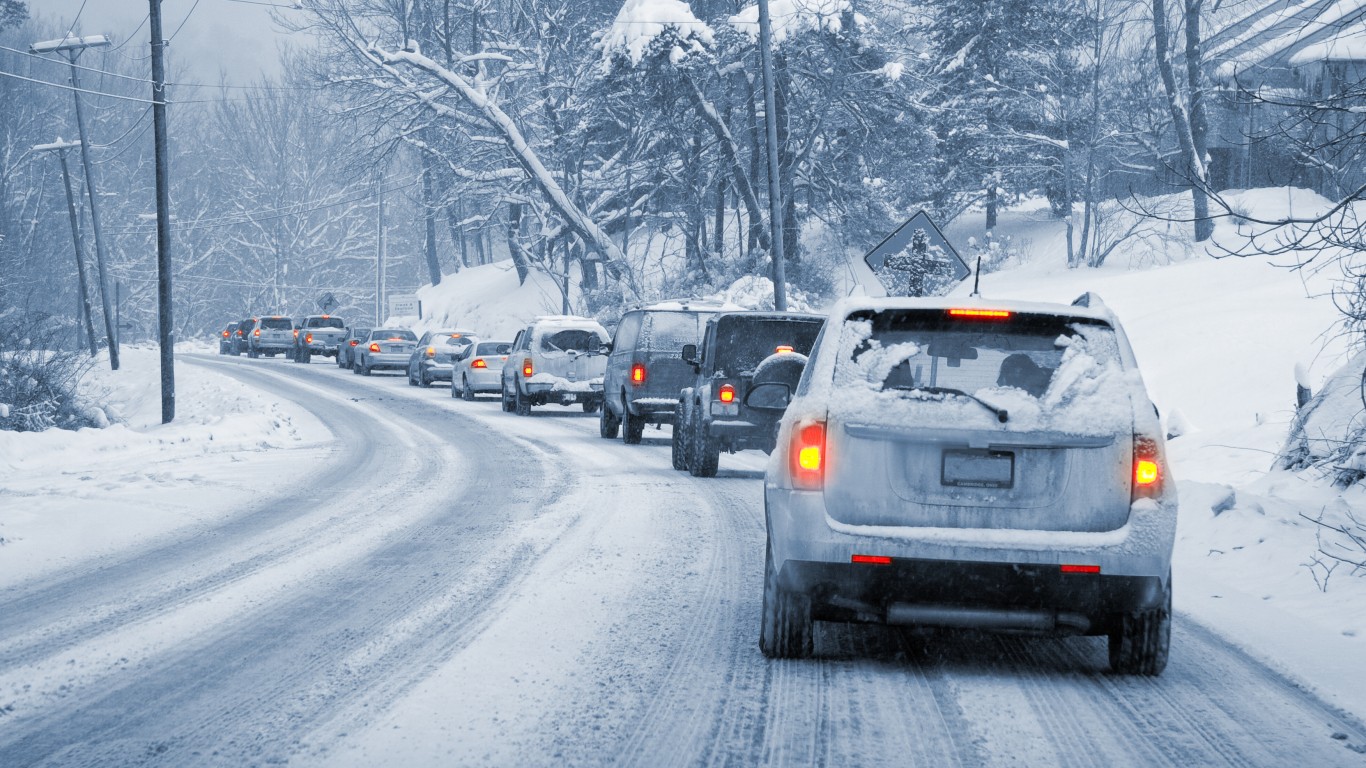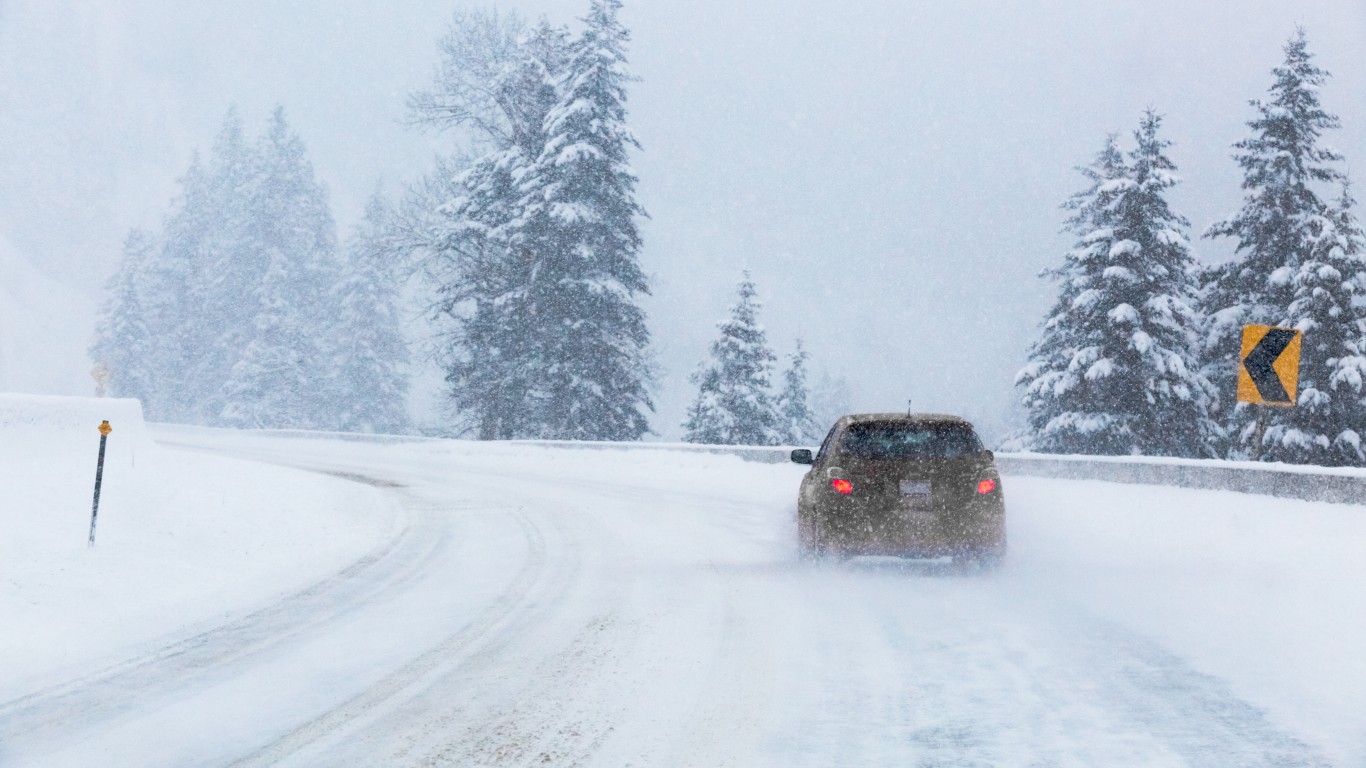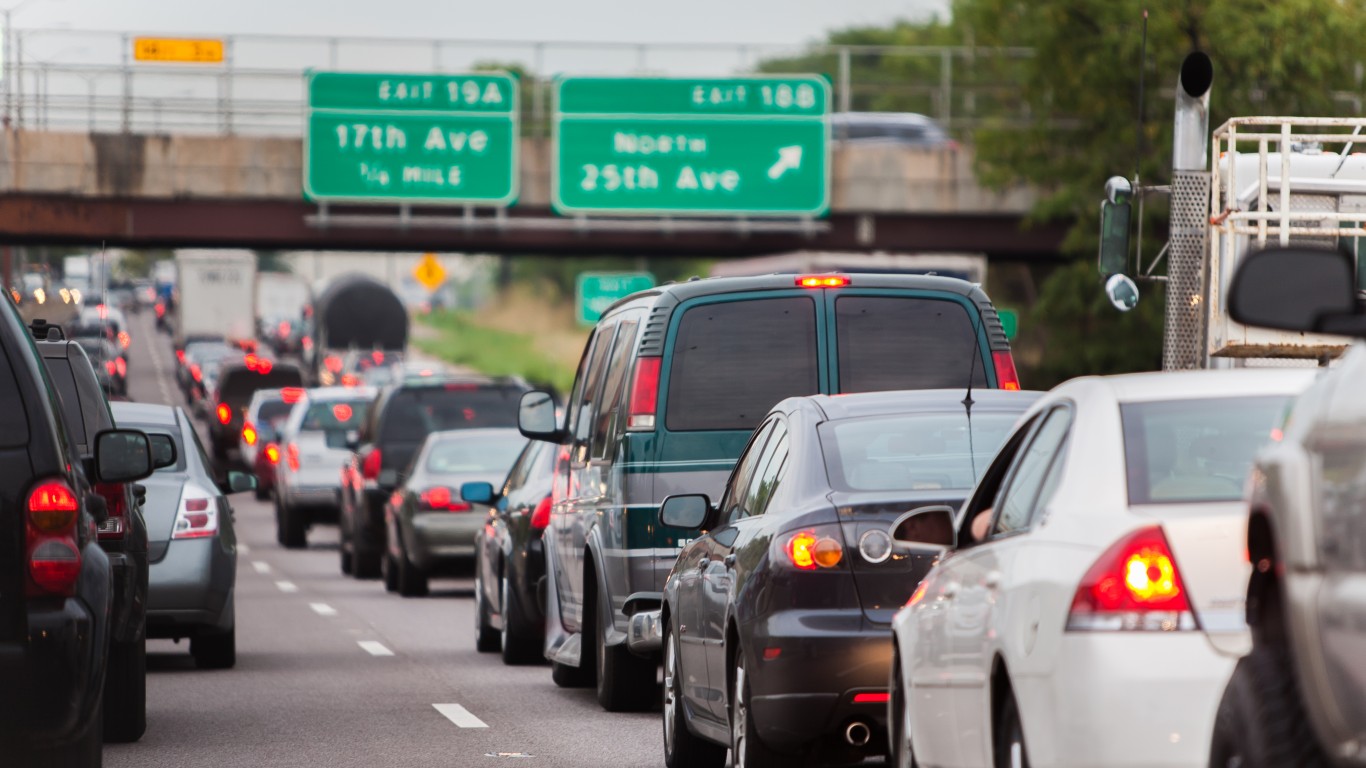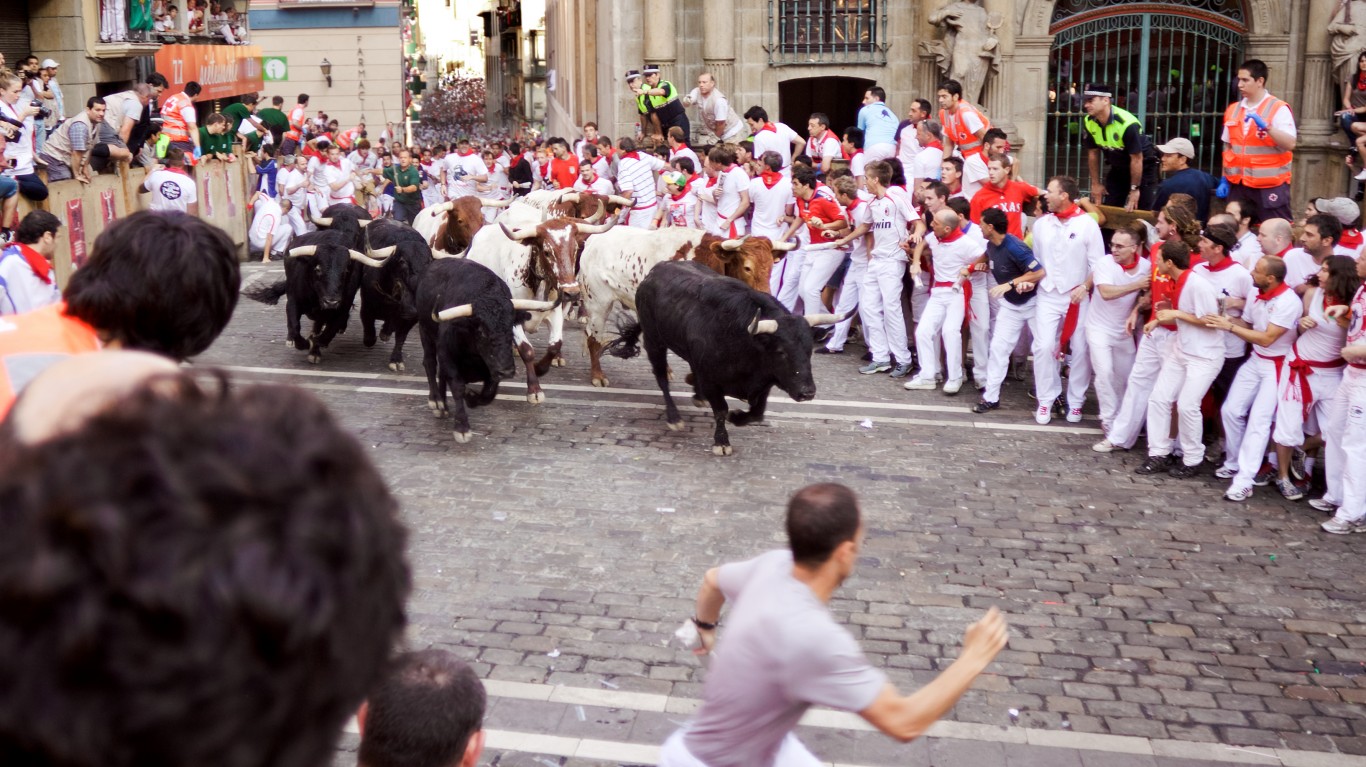
Thousands of people enjoy thrilling vacation pastimes like white-water rafting, mountaineering, surfing, and scuba diving; and most of them make it home with a story and some great photographs. Unfortunately, however, some daring tourists lose their lives in tragic accidents at popular tourist attractions.
In order to find the most dangerous tourist attractions on Earth, 24/7 Tempo consulted travel sites and other media sources. We focused on places that tourists could reasonably get to – not mountains that require expert climbing or survival skills – and where accidents have been reported in the past. We did not include environmental disaster sites like Chernobyl or so-called “death roads” like Yungas Road in Bolivia.
Click here to read more about the most dangerous tourist attractions on Earth
Some of the most dangerous tourist attractions are beaches with an above average rate of shark attacks, or underwater caves where many cave divers are known to have drowned. Others are mountains with extreme weather or narrow paths and sheer drops where hikers have died due to hypothermia or falls. (These are America’s most dangerous beaches.)
Falls are also common as tourists attempt to take extreme selfies on cliff edges, and numerous attractions, including Hawksbill Crag in Arkansas and the Cliffs of Moher in Ireland, are known as common sites of accidental selfie deaths. (Read about the most preventable selfie deaths around the world.)
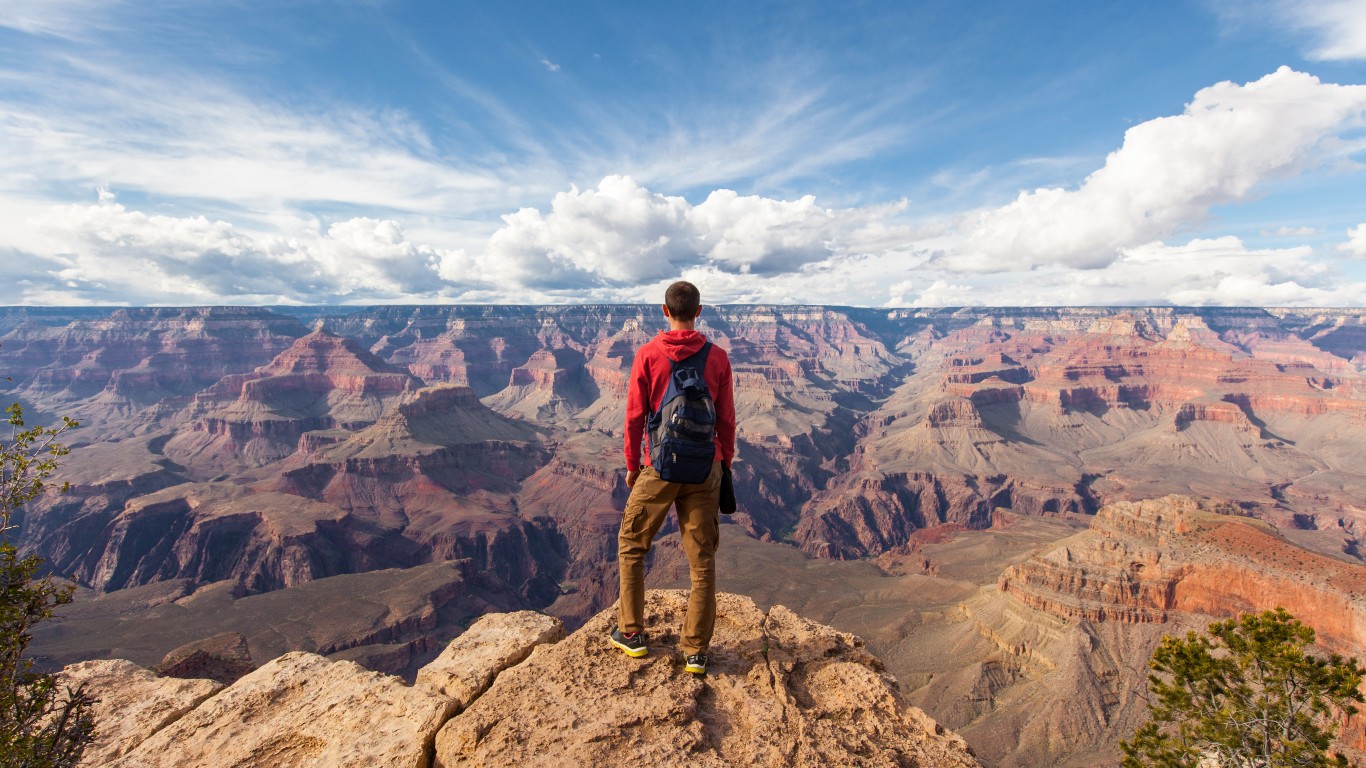
Grand Canyon
> Location: Grand Canyon National Park, Arizona
One of the most popular attractions in the U.S., the Grand Canyon is the site of about a dozen deaths every year. Surprisingly, only a few of those are due to falls. Other causes of death include dehydration and extreme heat, drowning, medical events, car accidents, and suicides.
[in-text-ad]
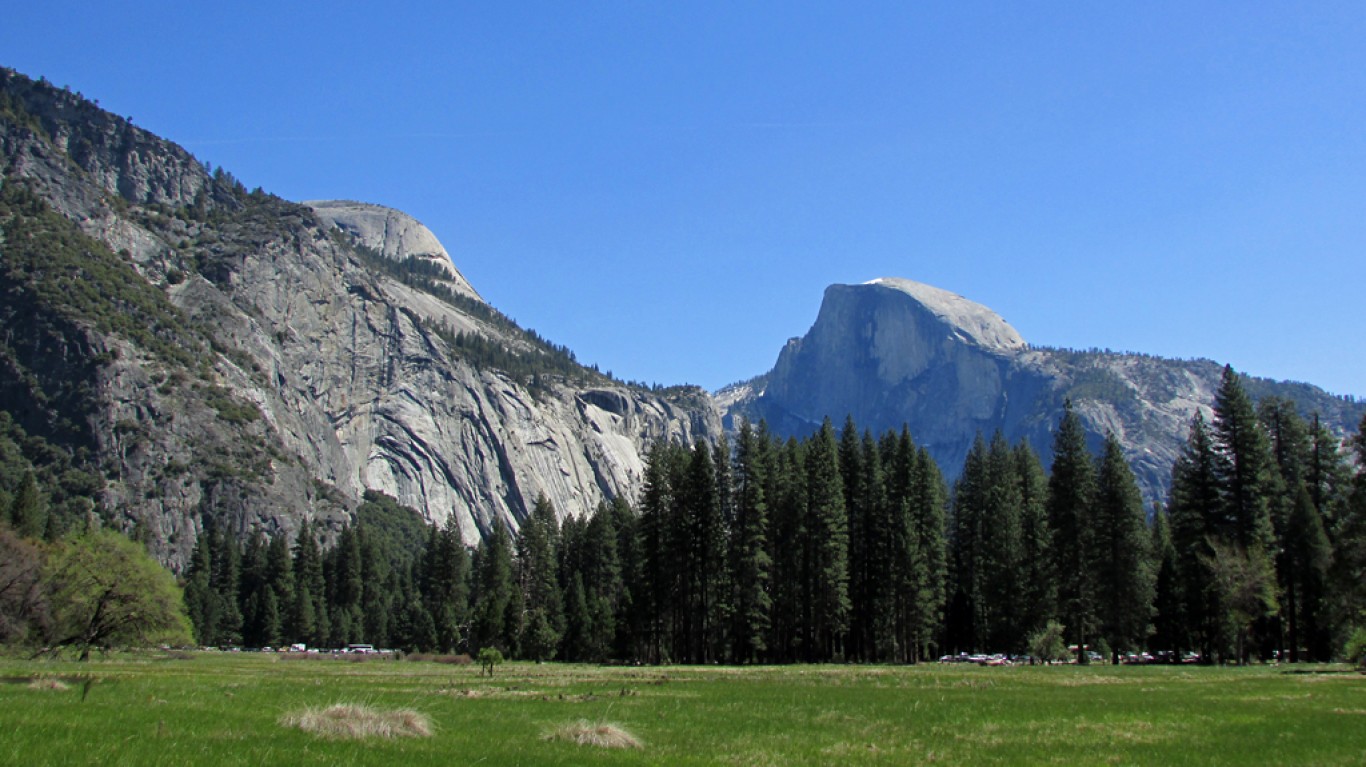
Half Dome
> Location: Yosemite National Park, California
A prominent item on many hikers’ bucket lists, this Yosemite icon requires a 14-mile round trip hike with an elevation gain of 4,800 feet. In addition, the peak features a steep section of cable climbing. Over 20 people have died on Half Dome, with an additional 40 dying on the trail leading up to the mountain.
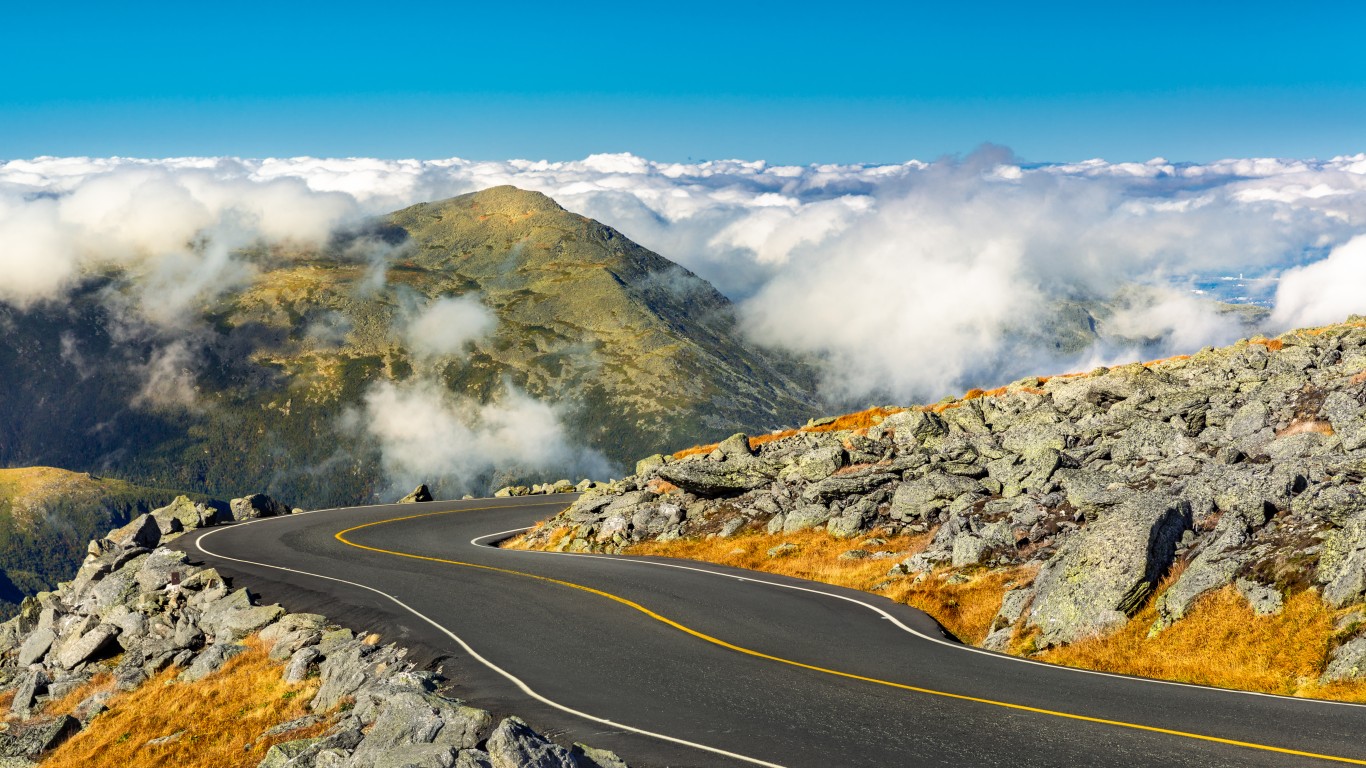
Mount Washington
> Location: Coos County, New Hampshire
The highest peak in the northeastern U.S., Mount Washington is known for having some of the most variable weather conditions and highest winds on earth – and for being one of the deadliest mountains in the country. Over 160 people have died on the 6,288-foot mountain since 1849, many from hypothermia.
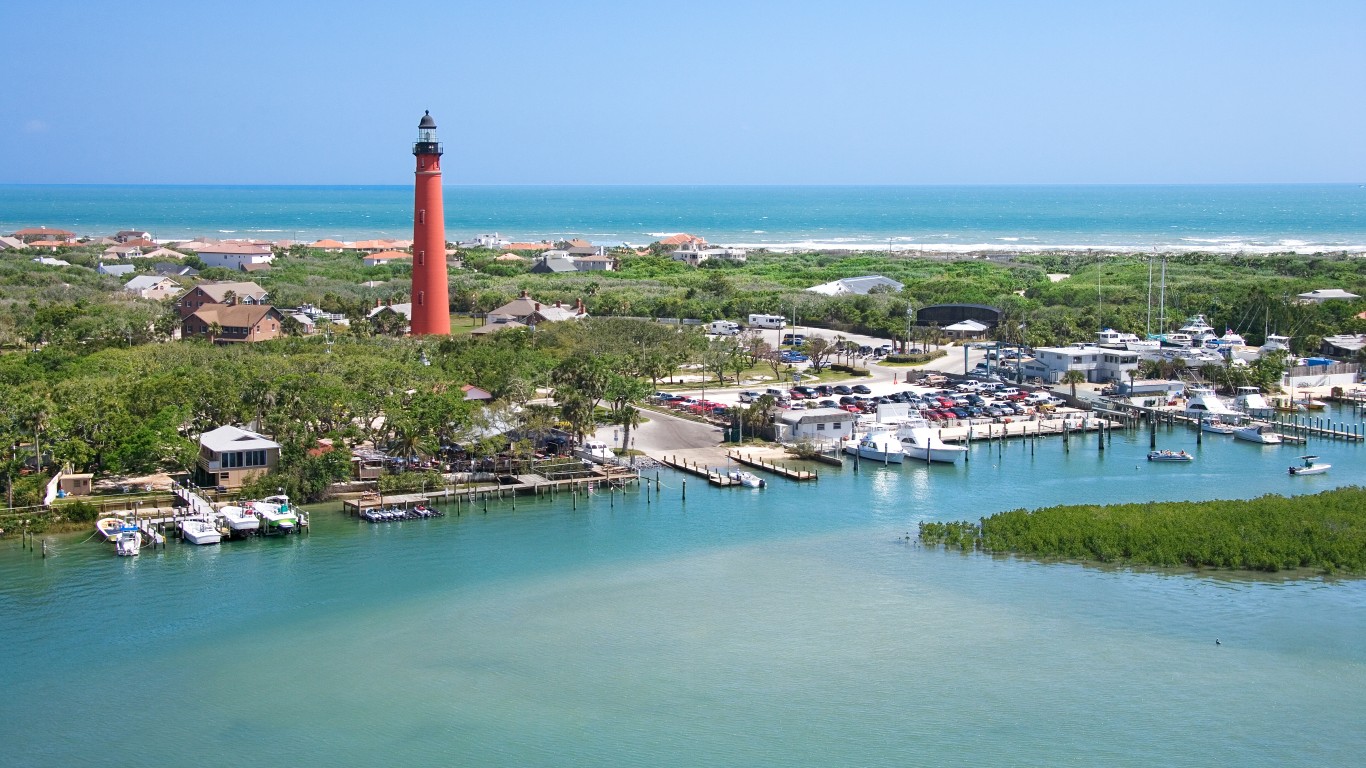
New Smyrna Beach
> Location: New Smyrna, Florida
Florida is known as the shark attack capital of the world, and New Smyrna Beach – a popular surfing destination – is the most dangerous beach in the state. Due to the abundance of prey fish in the area, surfers and swimmers there are 10 times more likely to be bitten by a shark there than anywhere else in the U.S.
[in-text-ad-2]
Colorado rivers
> Location: Colorado
Some of the best – and most dangerous – white water rafting rivers in the U.S. are in Colorado. In fact, more people have died in Colorado’s rivers than in any other state’s, with the Arkansas River claiming the most lives since 1982.
Eagle’s Nest Sinkhole
> Location: Weeki Wachee, Florida
One of the deadliest cave diving sites in the world, this underwater system of tunnels can get murky, creating low visibility in the maze-like network of turns. It is easy to become lost in the tunnels, and a dozen explorers have died in the caves since 1981.
[in-text-ad]
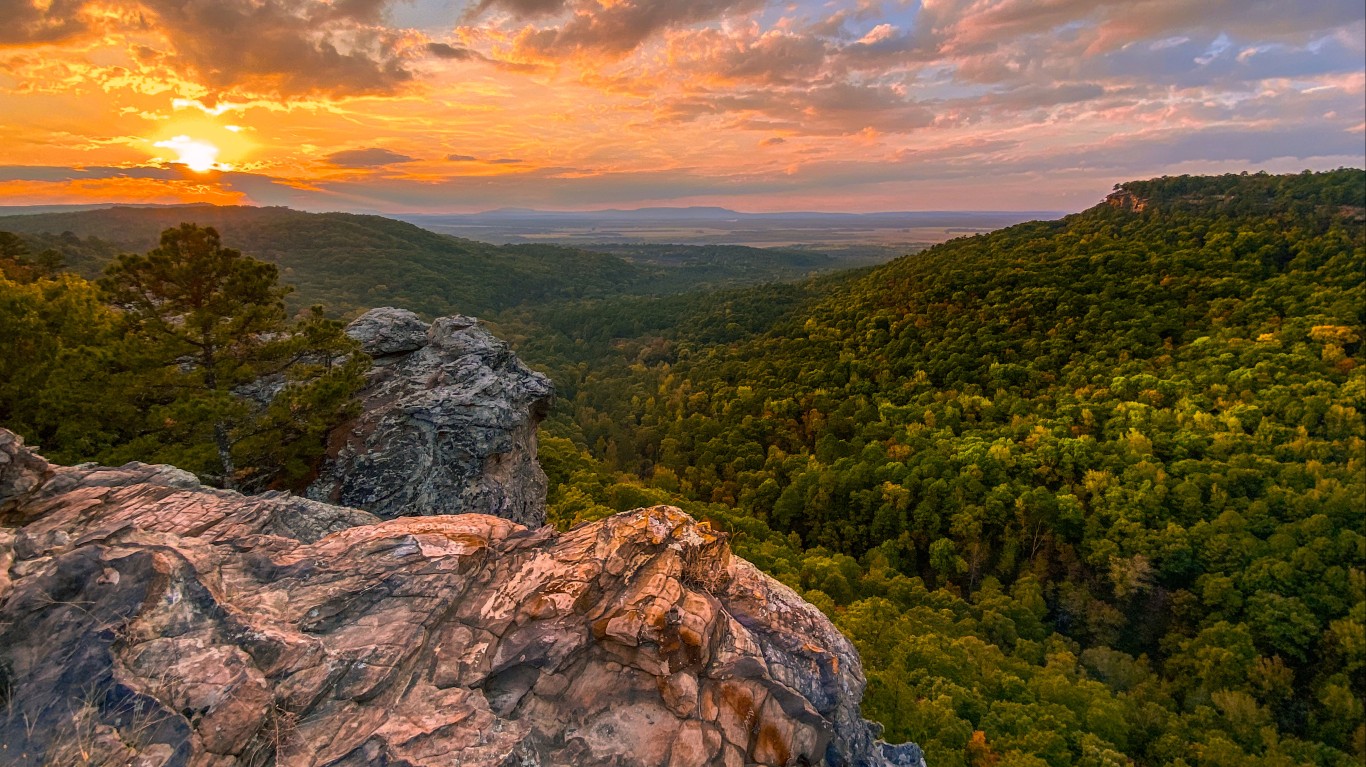
Hawksbill Crag
> Location: Newton County, Arkansas
Also known as Whitaker Point, this picturesque overlook is easy to access with a 2.8-mile round-trip hike. The crag has no guard rails, however, and is a popular place for selfies and photographs. With a drop of several hundred feet, a fall off the overlook is generally fatal., and has claimed several lives.
Angel’s Landing
> Location: Zion National Park, Utah
This iconic peak at Zion National Park is a popular hike for adrenaline junkies. With a narrow trail and drop-offs up to 1,000 feet on either side, deaths and injuries are not uncommon. At least 17 people are confirmed to have died on the trail – most of those from falls.
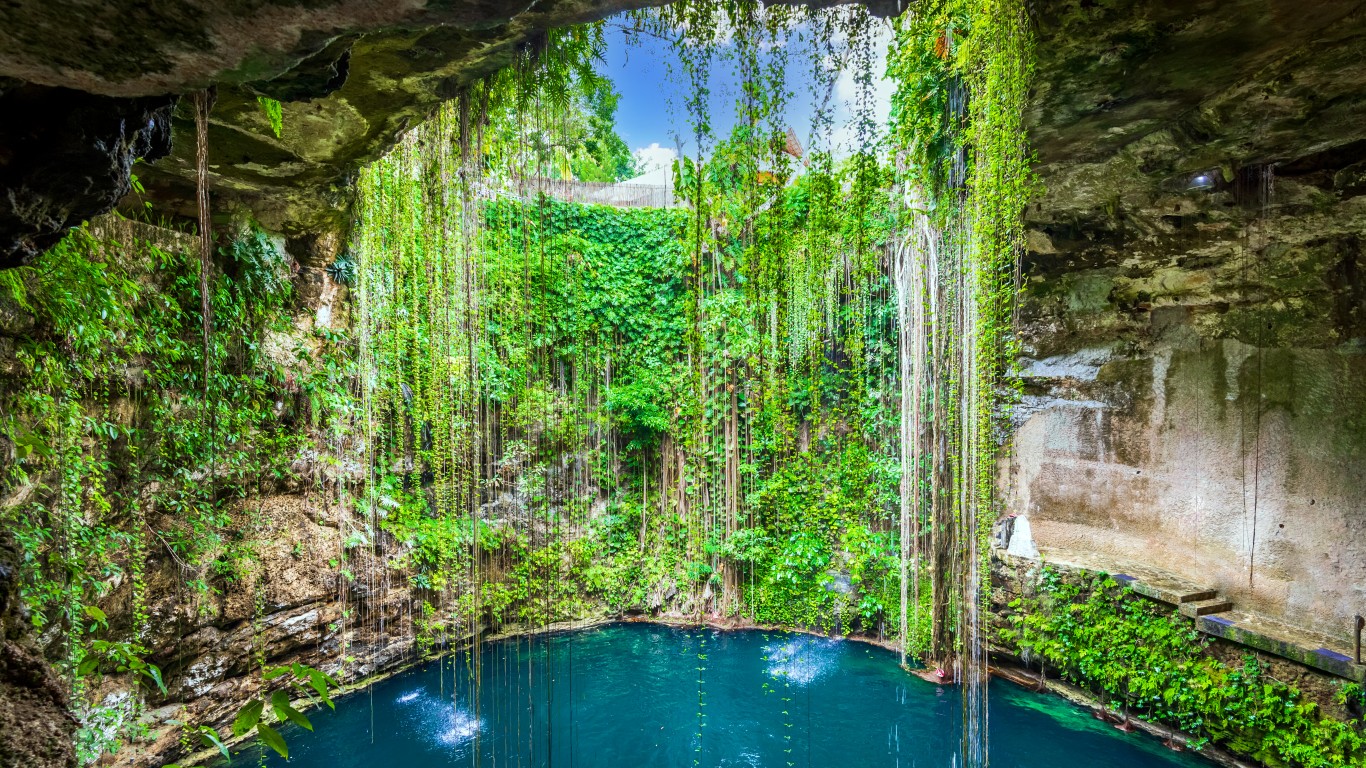
Yucatán Cenotes
> Location: Yucatan, Mexico
The Yucatán Peninsula has some of the longest underwater cave systems in the world, and most of them are unmapped. These flooded sinkholes are a destination for daring scuba divers, who face dangers including getting stuck in narrow crevices, becoming tangled in vegetation, and simply getting lost.
[in-text-ad-2]
Recife Beach
> Location: Recife, Brazil
After the opening of a nearby port, which caused massive environmental shifts, this Brazilian beach went from having virtually no shark attacks to having over 56 in 20 years. It is now closed to surfers and is one of the most dangerous beaches in the world, with 37% of the attacks being fatal, compared to a worldwide average of 16%.
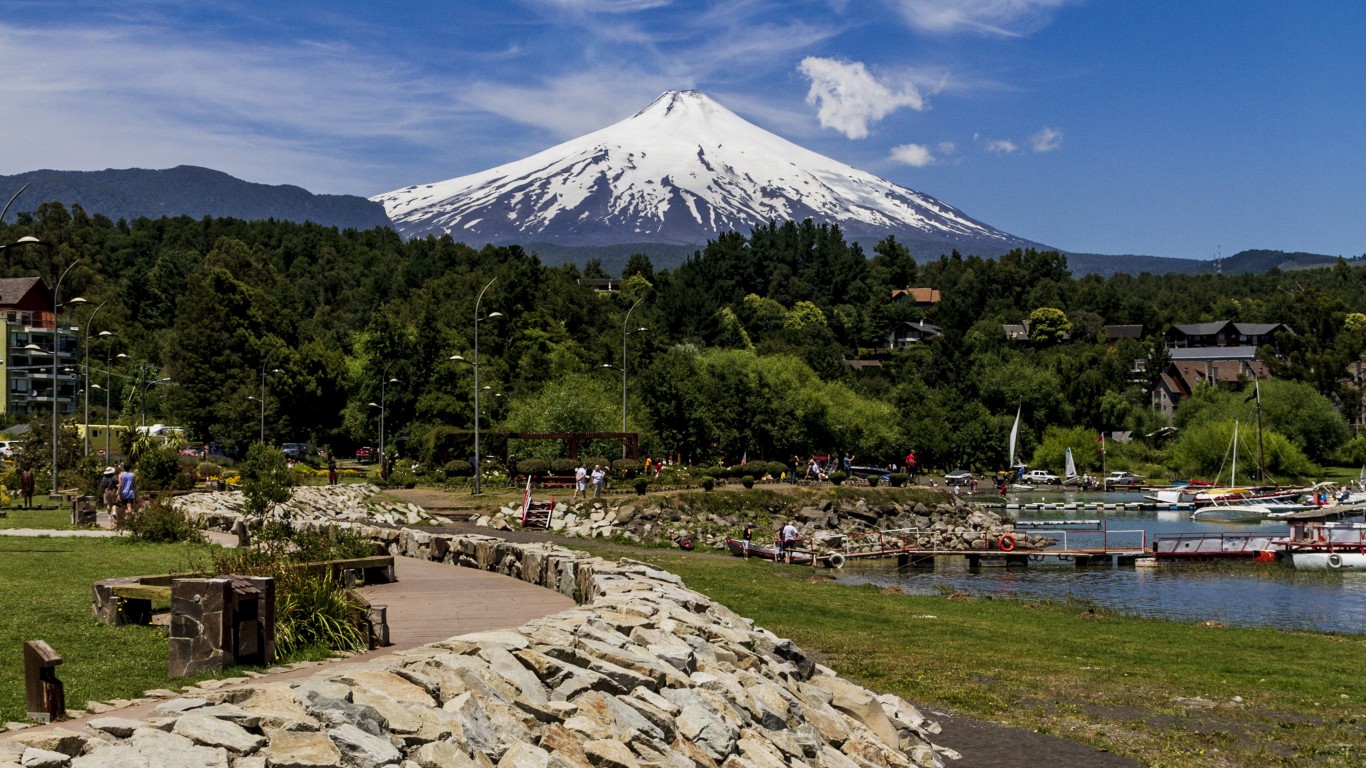
Villarrica
> Location: Southern Chile
One of South America’s most active volcanoes, Villarrica draws adventurous hikers, who navigate its steep slopes for the chance to peer into the steaming crater, as well as daredevil skiers. Falls and accidents are not uncommon on the steep slopes, and mudflows from eruptions have killed over 100 people.
[in-text-ad]
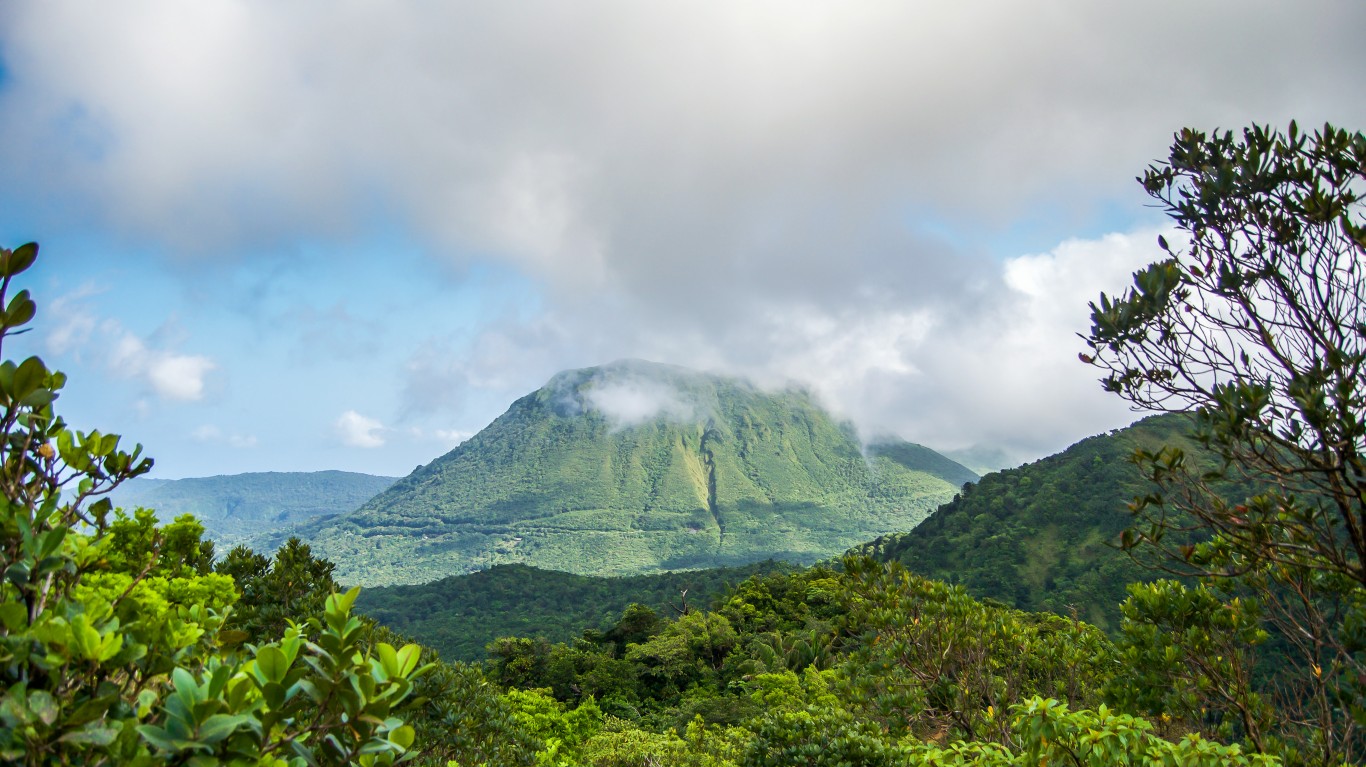
Boiling Lake
> Location: Morne Trois Pitons National Park, Dominica
At the end of a steep, strenuous hike into an area called the Valley of Desolation, a flooded fumarole boils with scalding hot water. Slippery rocks line the sides of the lake and precipitous drops abound. Despite the danger of the area, the last recorded deaths occurred in 1900, when a sudden release of volcanic gasses asphyxiated two hikers, who then fell to their deaths.
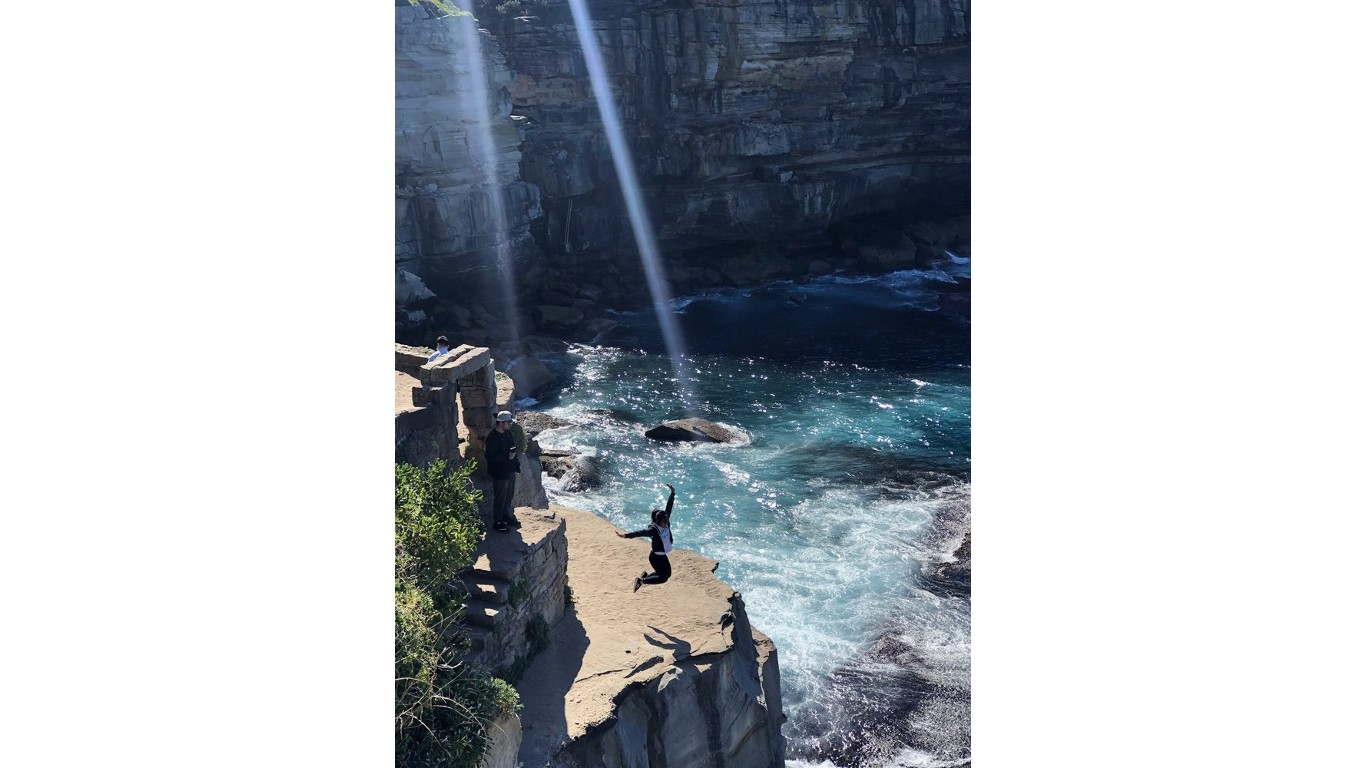
Diamond Bay Reserve
> Location: Vaucluse, Australia
These sheer cliffs and staircases over turquoise waters have been made popular by Instagram influencers, some of whom have fallen to their deaths attempting to take pictures on the ledges. Although there are fences in some areas, young people often climb the fences in order to get a perfect shot.
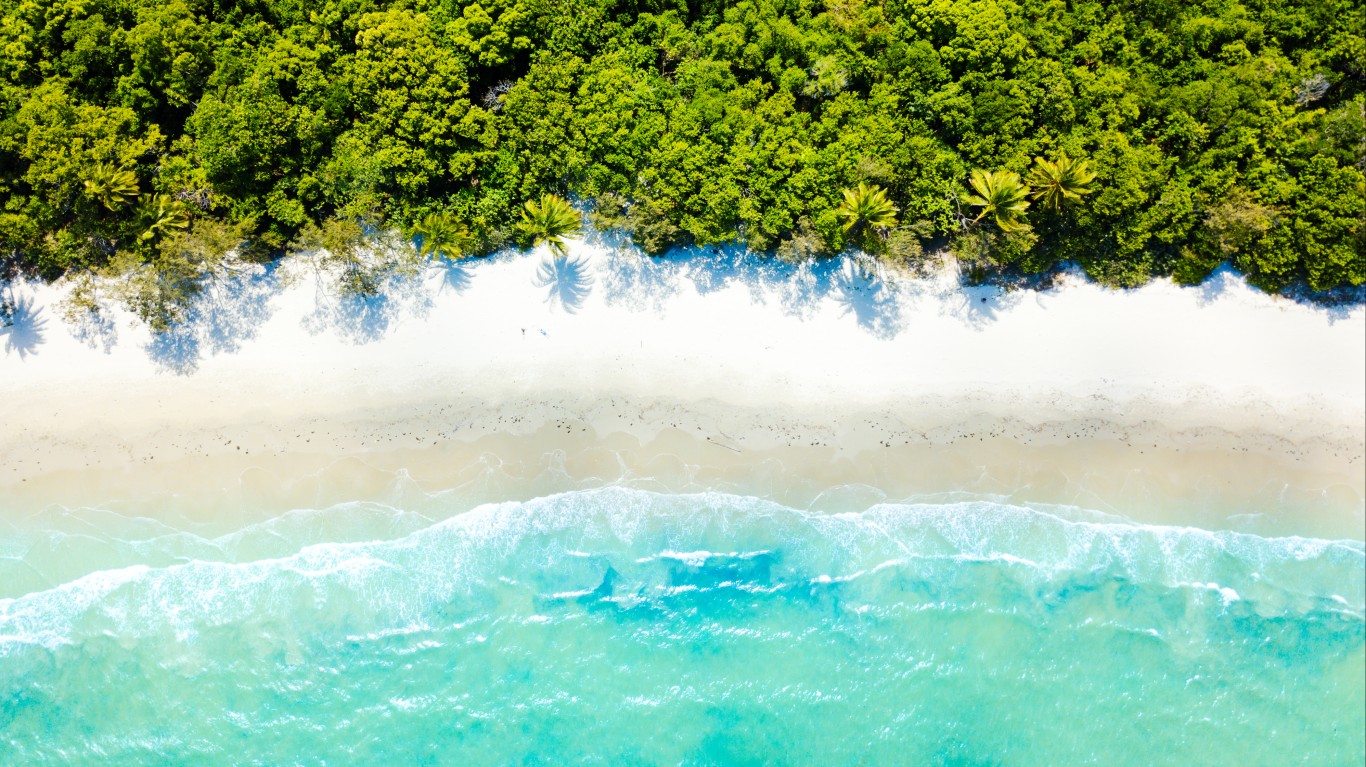
Cape Tribulation
> Location: North Queensland, Australia
The stunning beaches at Cape Tribulation are rife with dangers including saltwater crocodiles, stinging trees, and wild boars – but the deadliest critters are the box jellyfish, who appear from October through June. Their venom attacks the cardiovascular system and is so potent that it can kill swimmers in minutes or cause them to drown before reaching shore.
[in-text-ad-2]
Cascade Saddle Route
> Location: Mount Aspiring National Park, New Zealand
This grueling 15-mile trek has the payoff of amazing alpine views, but the narrow and slippery trail has led to many falling deaths. Winter conditions are even more slippery and treacherous, and some have died of exposure as well as drowning while crossing swollen rivers.

Running of the bulls
> Location: Pamplona, Spain
This yearly tradition every July attracts around 2,000 participants, who run through the streets ahead of a dozen bulls. Every year hundreds are injured by falls, trampling, and goring. While deaths are infrequent, 16 people have lost their lives in the event since 1910.
[in-text-ad]
Mont Blanc
> Location: Chamonix, France
Every year, over 30,000 people attempt to climb the highest mountain in Western Europe, which has claimed hundreds of lives and is the site of half of all mountaineering accidents in France. Most of those are along a particularly perilous stretch on the climb to Goûter Hut, where climbers are prone to falling, being hit by falling rocks, or getting lost in poor weather conditions.
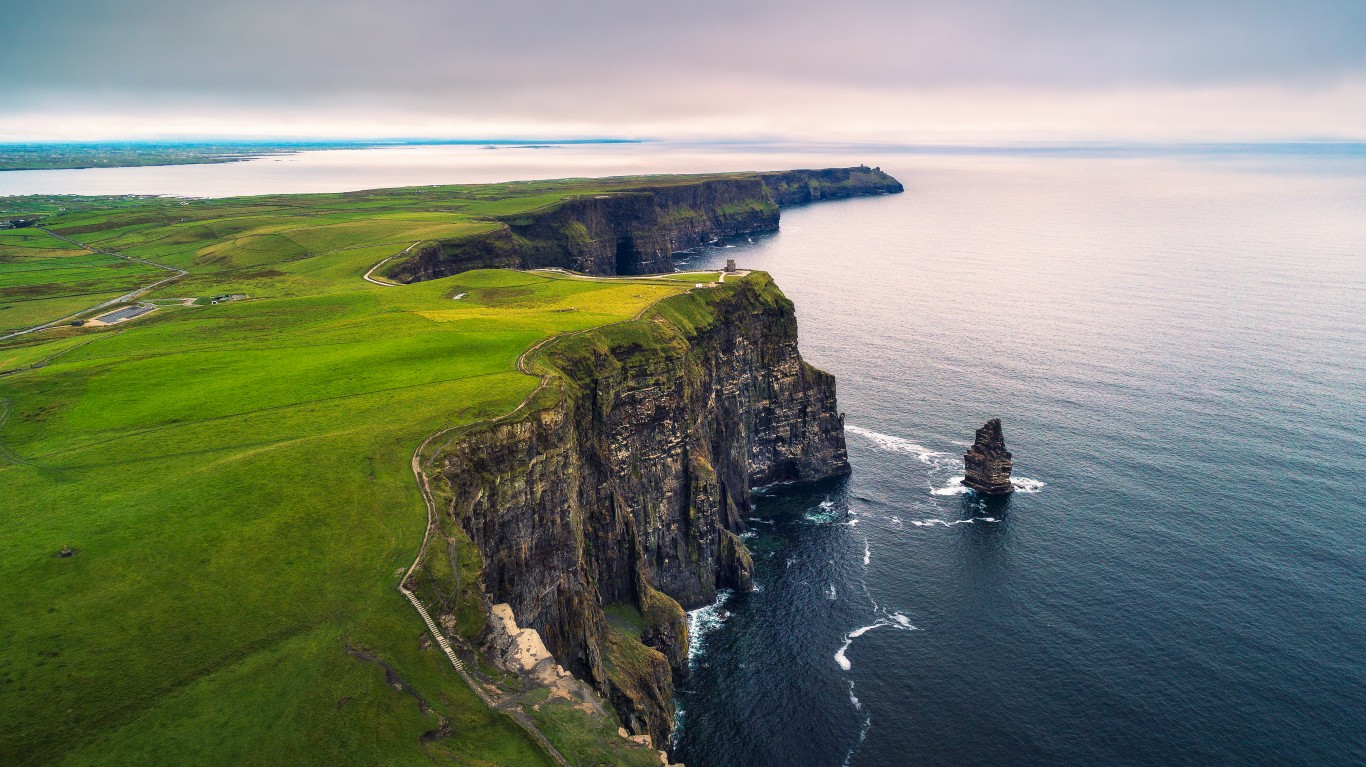
Cliffs of Moher
> Location: County Clare, Ireland
With majestic views of the Aran Islands and Atlantic Ocean, these emerald green clifftops have no railings to keep intrepid tourists from tumbling over the edges. The sheer 700-foot drop from the cliffs has killed about nine people per year, some of whom have fallen while taking selfies.
El Caminito Del Rey
> Location: El Chorro, Málaga, Spain
Built in the early 20th century to allow construction workers to carry supplies to a nearby dam, this narrow walkway sits on a sheer cliff face 350 feet above a turquoise river. After several adventurous tourists died at the site in a two-year span, the walkway was closed and repaired with safety upgrades.
[in-text-ad-2]
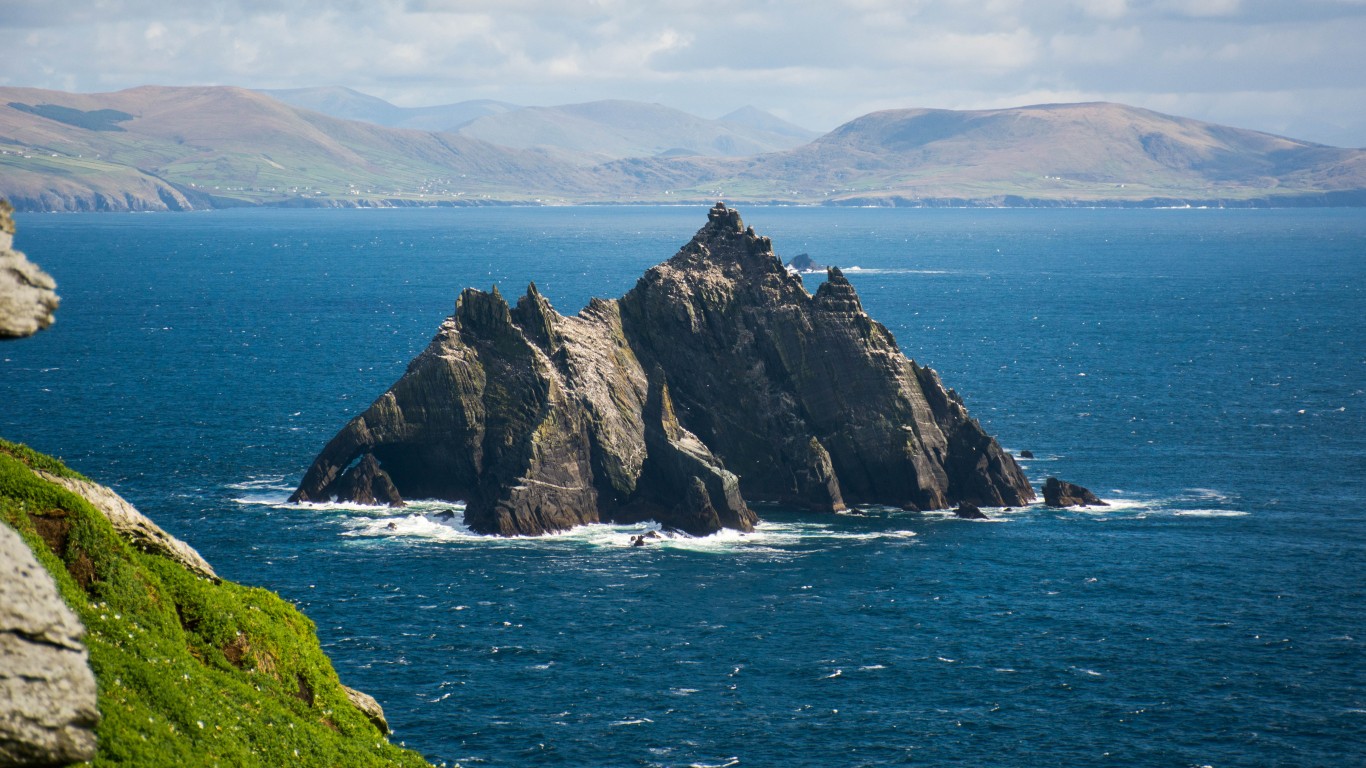
Skellig Michael
> Location: Southwestern coast of Ireland
This steep twin-peaked crag contains the ruins of a 13th-century monastery, and can be accessed by a winding stone staircase. Featured in “Star Wars VII: The Force Awakens,” the site has become a tourist hotspot. After multiple falling deaths, visitor numbers are now limited, and safety features including chains and handrails have been added.
Alnwick Poison Garden
> Location: Alnwick, Northumberland, England
This enclosure of colorful flowers and ornamentals at Alnwick Castle is landscaped with solely toxic and deadly plants including henbane, castor plants, and strychnine trees. Visitors are warned not to touch or smell the plants, and some species are even kept in locked cages.
[in-text-ad]
Blue Hole
> Location: Sinai, Egypt, on the coast of the Red Sea
A 300-foot sinkhole that draws scuba divers and free divers, this notorious attraction has claimed an estimated 200 lives in recent years. A narrow tunnel called the Arch leads from the hole into open waters, and is the site of most of the accidents, as divers can become disoriented in the tunnel and drown.
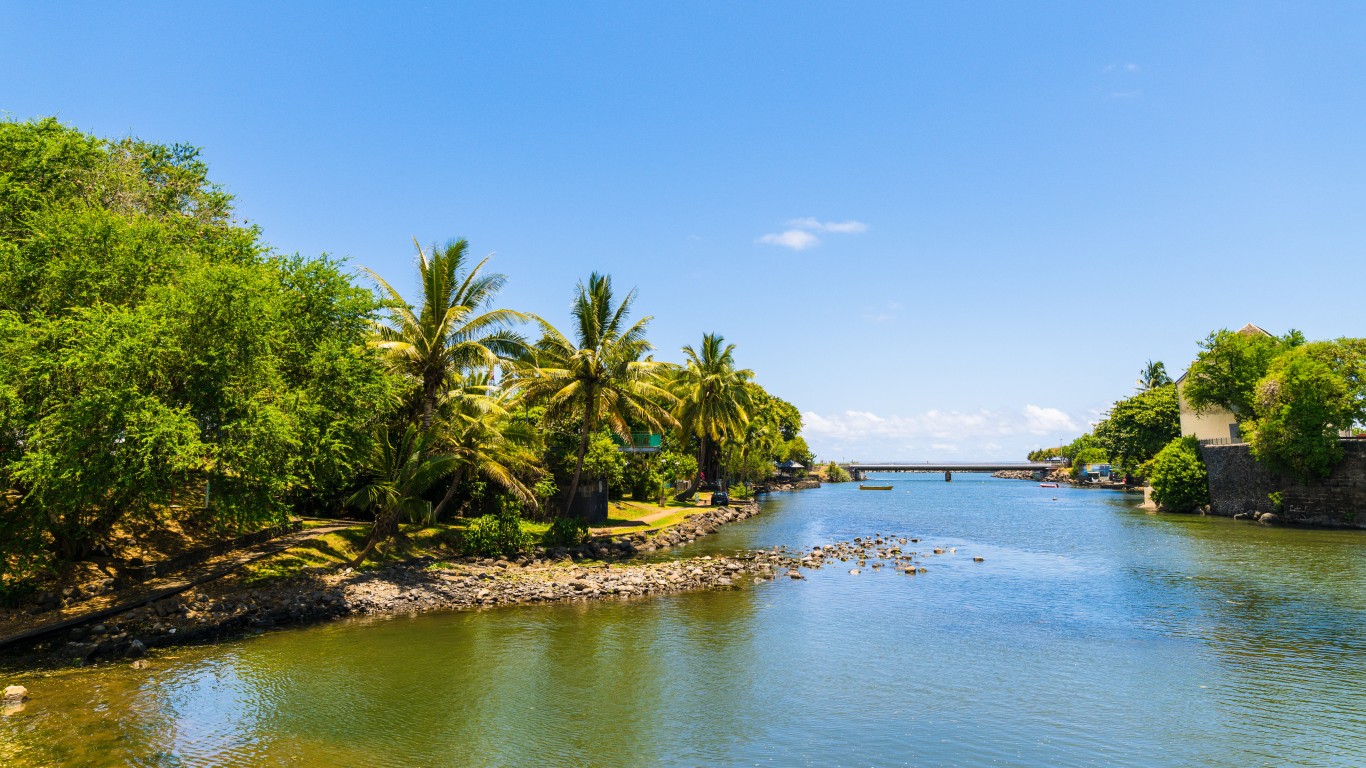
Réunion Island
> Location: French island in the Indian Ocean
Over 50 shark attacks have been recorded on this island southwest of Mauritius since 1988, and at least 11 people have died in attacks since 2011. The beaches are so dangerous that swimming and surfing have been banned at any location without shark nets.
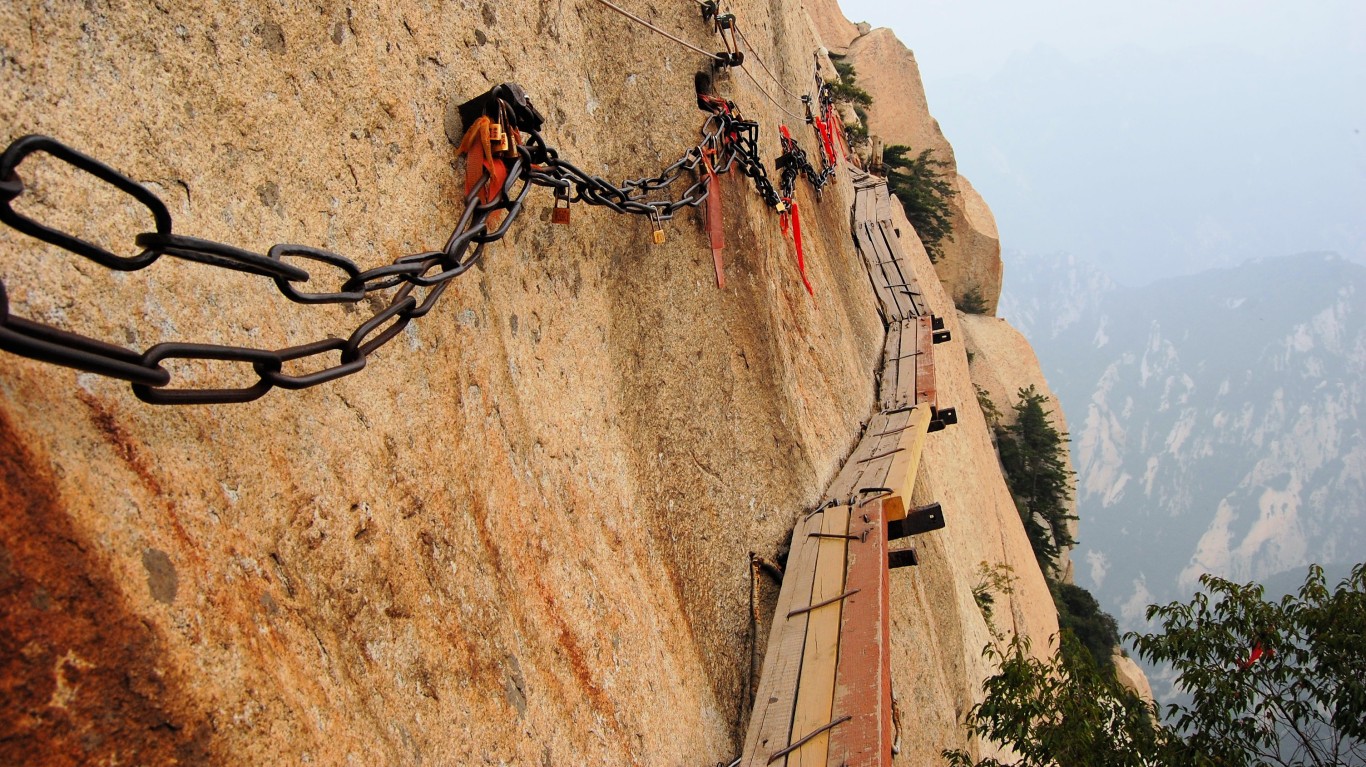
Mount Huashan
> Location: Shaanxi, China
This steep, 7,000-foot mountain in Shaanxi Province features a plank walk made of narrow wooden boards that leads to a small temple at the peak. Although there is no handrail in most places, hikers can harness themselves to a cable while they climb.
In 20 Years, I Haven’t Seen A Cash Back Card This Good
Credit card companies are at war, handing out free rewards and benefits to win the best customers. A good cash back card can be worth thousands of dollars a year in free money, not to mention other perks like travel, insurance, and access to fancy lounges. Our top pick today has pays up to 5% cash back, a $200 bonus on top, and $0 annual fee. Click here to apply before they stop offering rewards this generous.
Flywheel Publishing has partnered with CardRatings for our coverage of credit card products. Flywheel Publishing and CardRatings may receive a commission from card issuers.
Thank you for reading! Have some feedback for us?
Contact the 24/7 Wall St. editorial team.
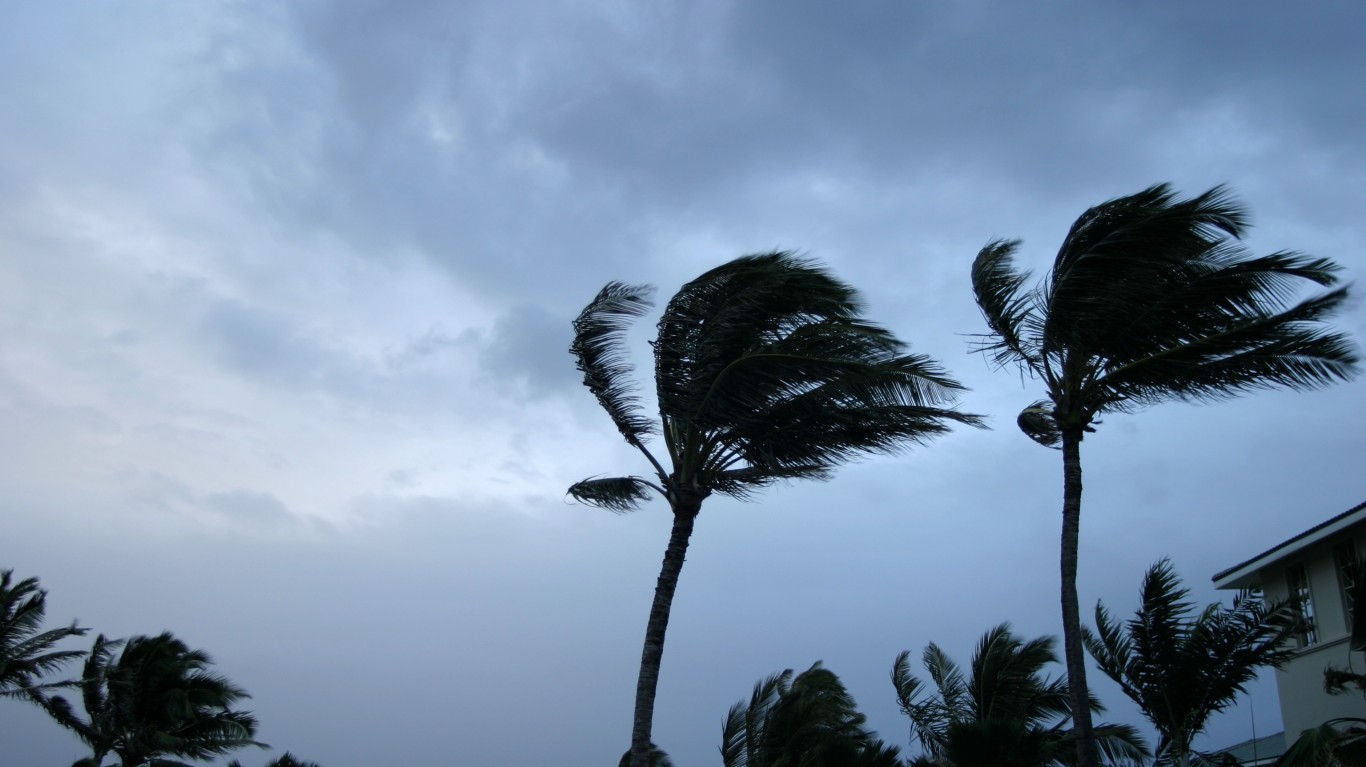 24/7 Wall St.
24/7 Wall St.